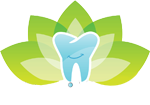Wisdom Teeth Extraction Surgery: Everything You Want to Know About the Procedure
Wisdom teeth removal surgery is a process to extract the third set of molars emerging between ages 17 to 25. Many people have at least one impacted wisdom tooth because they don’t have sufficient space for emerging correctly. You can have your wisdom teeth removed either because they are impacted or identified as problematic to cause issues the damage the surrounding teeth and bones.
Wisdom teeth removal surgery is performed in an outpatient setting by a dentist or oral surgeon. Dentists recommend this surgical procedure if x-rays reveal that your wisdom teeth are impacted and may cause dental issues for you in the future.
The oral surgeon from Arlington dental cuts open your gums for removal of the impacted wisdom tooth. You receive anesthesia during the surgery, which could either be intravenous sedation or sedation dentistry. The oral surgeon determines which sedation method is best based on your comfort level and the complexity of the tooth removal process. How many wisdom teeth extractions in Toronto, ON, you need is also considered by the oral surgeon.
What Is the Purpose of Wisdom Tooth Removal Surgery?
The Dentist in Toronto, ON, monitors the development of your wisdom teeth during regular dental exams with dental x-rays. The dentist may discuss wisdom teeth removal near you if your third molars are impacted or indicate their potential to cause problems like infections, tooth decay, periodontal disease, bone loss, damage to surrounding teeth, and tooth loss.
The dentist may recommend undergoing wisdom teeth removal surgery even if you are not experiencing any symptoms to prevent potential problems before making their presence felt. Wisdom teeth are positioned in an area that is challenging to clean, making it difficult for you to maintain good oral hygiene.
You are referred to an oral surgeon for the procedure. The surgeon schedules a consultation before the surgery to look at your dental records and take additional x-rays to confirm your surgical needs.
Preparing for Wisdom Tooth Removal
Discuss any concerns you have with your surgeon before the procedure. They can inform you about what to do or avoid in the days before the surgery and plan for the recovery. You also receive information about the anesthesia you will receive and how you feel after the surgery.
You can prepare for your recovery by purchasing some soft or liquid foods easy to eat following a wisdom tooth surgery. Bear in mind to buy foods that don’t require chewing.
The Surgical Procedure
Wisdom tooth removal surgery is accomplished in approximately 45 minutes. You will not endure any pain during the procedure. You receive local anesthesia in your mouth regardless of the type of anesthesia you are given to manage dental anxiety.
The oral surgeon removes any gum tissue covering the area nearby the wisdom tooth. Bone might entirely or partially cover an impacted wisdom tooth with bone. A high-speed instrument is used to drill through and remove the bone surrounding the tooth in such cases. Surgical instruments are used to loosen the tooth after it is entirely visible to the oral surgeon. The tooth is cut in pieces to enable easier removal if necessary. The surgeon closes the wound by inserting sutures, especially when an impacted wisdom tooth is removed.
What after the Surgical Procedure?
Following the surgical procedure, the dentist provides gauze for you to bite down to help blood clot formation. You will not experience much pain immediately after the operation but will likely begin feeling the discomfort as the anesthesia wears off.
Recovering from Wisdom Teeth Extraction
You will experience some pain, bleeding, and swelling in the mouth and cheeks, likely to persist for several days following the surgery. The extraction site requires about 45 days to heal, but you can resume your everyday activities the day after the procedure. You must avoid strenuous activity for a week after the surgery to ensure the blood clot remains in place.
Avoid using an electric toothbrush for brushing your teeth and prefer instead a manual one which is gentler. Do not brush your teeth next to the extraction site. Your dentist in Toronto, ON provides over-the-counter or prescription medicines to ensure you overcome any discomfort you feel after the surgery. The dentist also offers suggestions for what you can eat or avoid.
Wisdom teeth removal is a standard procedure, and complications rarely affect you. For successful recovery, you must follow post-operative instructions from the oral surgeon during the first seven to ten days. The procedure may sound fearful but is performed by dentists and oral surgeons routinely to prevent complications in your mouth.

